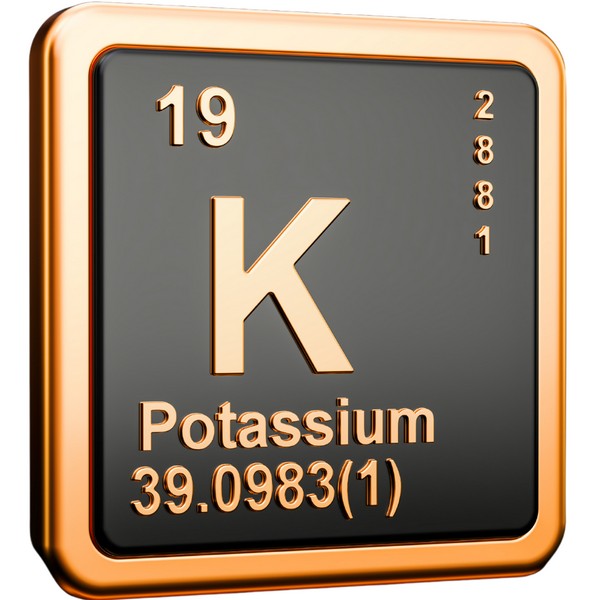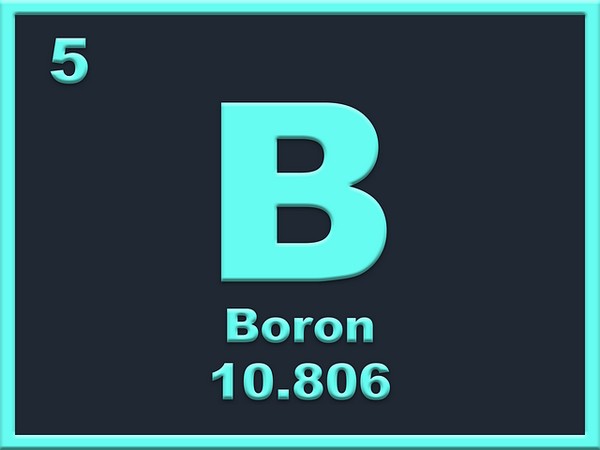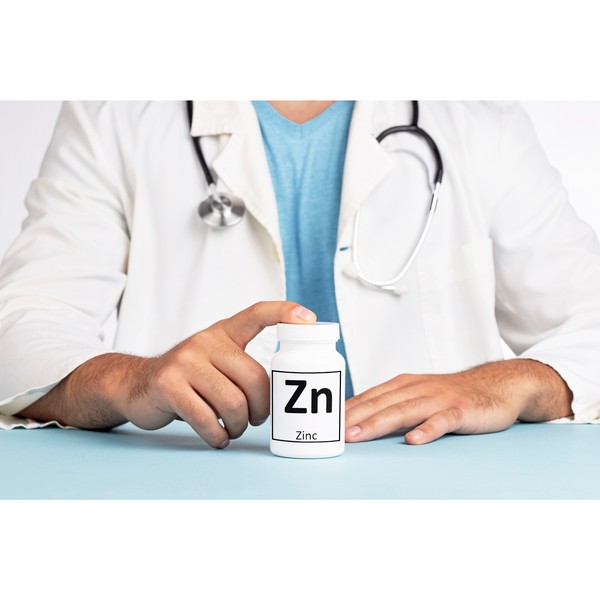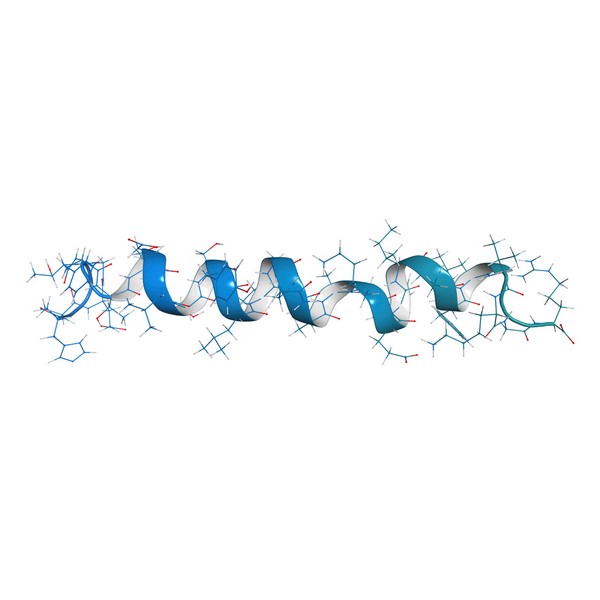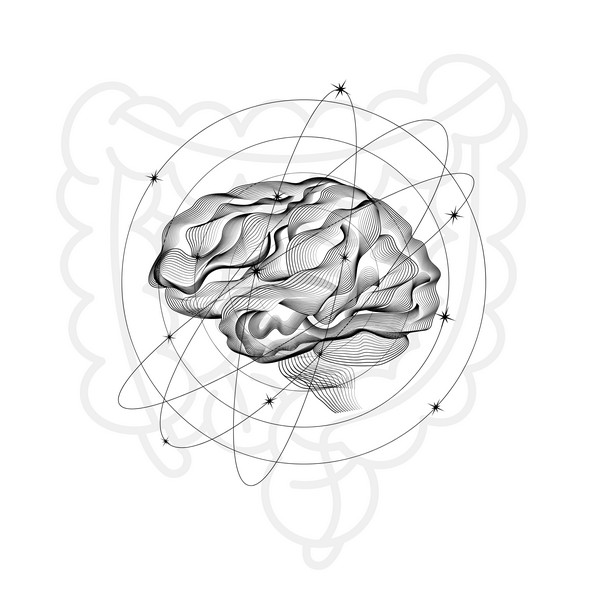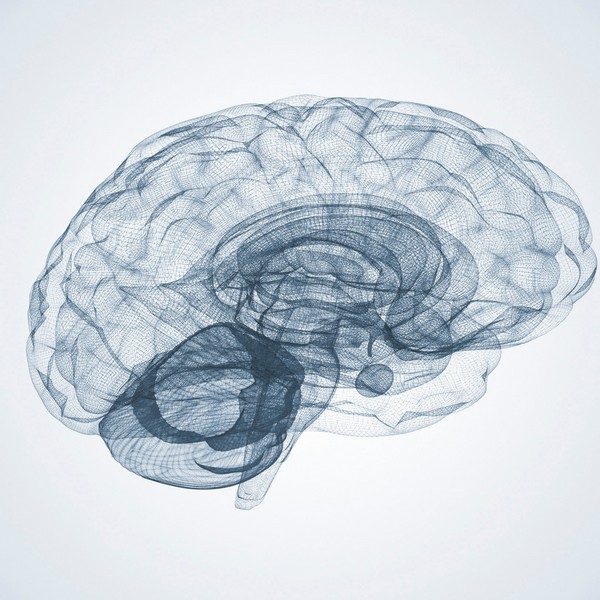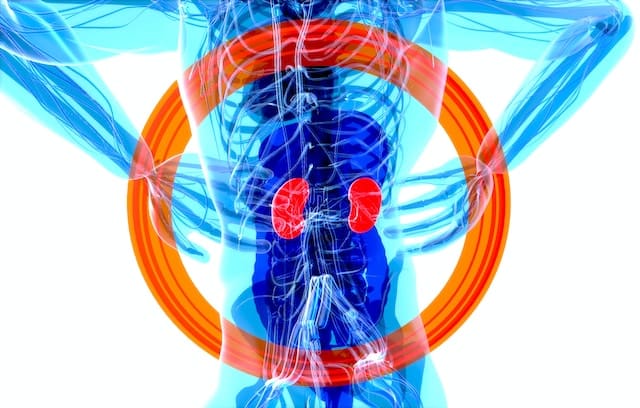Key Takeaways
- Magnesium is crucial for numerous body functions, aiding in bone, heart health, and blood sugar control.
- Regular magnesium intake can reduce inflammation, boost mood, prevent migraines, and alleviate PMS symptoms.
- Magnesium enhances exercise performance, helps manage depression and anxiety, and stabilizes blood sugar levels.
- Taking magnesium supplements at bedtime can improve sleep quality, while low levels may heighten depression and anxiety risks, underscoring the need for managed intake.
Table of Contents
Magnesium is an extremely important mineral but most people do not get enough of it. Approximately 80 percent of all Americans unknowingly suffer from chronic Magnesium deficiency.
This critical element powers numerous biochemical processes, acting as a key to unlock functions that sustain our vitality.
Importance of Magnesium
Magnesium is essential for a healthy body, as it plays an active role in hundreds of biochemical reactions necessary for proper organ functioning, bone health, and blood sugar regulation.
It can provide anti-inflammatory and mood-boosting benefits and may even help prevent migraine attacks or improve PMS symptoms.
Biochemical reactions in the body
- Magnesium is crucial for numerous biochemical reactions in the body.
- It is found at the core of important enzymes and involved in various bodily processes.
- Functions include metabolism, calcium absorption, and ATP production.
- It also regulates cellular activities and cell membrane potential.
Bone health, heart health, and blood sugar regulation
Magnesium helps bones by increasing calcium absorption and reducing inflammation. For the heart, it prevents excessive clotting and keeps blood sugar levels stable by breaking down sugars in the liver.
People with diabetes or prediabetes often use magnesium as part of their treatment.
Anti-inflammatory and mood-boosting benefits

Research shows magnesium fights inflammation in various body parts.
It also balances hormones like serotonin, dopamine, noradrenaline, and melatonin, crucial for mood and mental health.
Magnesium can treat depression, anxiety, and ADHD.
Magnesium lets neurotransmitters move freely by adjusting cell electrical potentials. This relaxes nerve pathways and improves brain communication, essential for cognitive health.
Migraine attacks and PMS symptoms
Studies suggest it helps prevent migraines and improve PMS symptoms. Magnesium can ease cramps, headaches, bloating, and fatigue during periods.
Taking 400–500mg daily may reduce monthly migraines. Combining magnesium with vitamin B6 may also help with PMS. Always consult your doctor before starting new supplements.
Health Benefits of Magnesium
Magnesium has many health benefits such as boosting exercise performance, aiding in the reduction of depression and anxiety, and supporting healthy blood sugar levels
Boosts exercise performance
A high level of magnesium in the blood is linked to improved muscle performance and greater leg strength, making it beneficial for athletes.
Magnesium facilitates glucose availability in the brain, muscles, and blood as well as reducing/delaying fatigue. It can also stimulate protein synthesis and promote aerobic efficiency
Additionally, magnesium consumption increases nitric oxide secretion to dilate blood vessels which allows increased energy production by boosting ATP levels.

Fueling the ATP Synthesis Engine
Magnesium is fundamentally essential—indispensable—for the synthesis of ATP, the energy currency of the cell. It is a vital cofactor in ATP production, functioning within the complex protein machinery—ATP synthase—that manufactures ATP molecules.
With inadequate magnesium, ATP synthesis falters, cellular energy wanes and, consequently, critical biological operations slow, stressing the importance of sufficient magnesium intake.
Combats depression and anxiety
- Conditions Linked to Low Magnesium Levels:
- Depression.
- Anxiety.
- ADHD.
- OCD.
- Migraine headaches.
Supports healthy blood sugar levels
Magnesium plays a vital role in healthy blood sugar regulation. It involves the process of metabolizing calcium and copper for glucose synthesis.
Furthermore, high amounts of magnesium have been shown to reduce the risk factor of type 2 Diabetes since it helps regulate Insulin activity as well as modulate the electrical potential across cell membranes and release Mg-ATP needed for energy production by cells.
Studies also suggest that taking magnesium supplements might improve blood sugar control and insulin sensitivity among people with diabetes or prediabetes; magnesium helps prevent glucose spikes during mealtime and may even increase overall insulin sensitivity over time.
Magnesium and Sleep

Research suggests that magnesium helps improve the body’s ability to fall asleep and stay asleep, providing a natural solution for people struggling with sleep disturbances like insomnia.
Sleep quality and duration
Quality Sleep is essential for physical and mental health, particularly important during chronic stress or long-term conditions. Magnesium supports deep and restorative sleep. It also maintains healthy levels of GABA, promoting relaxation.
- Magnesium Supplementation Benefits:
- Lowers nighttime cortisol production.
- Enhances melatonin levels for regulating the sleep-wake cycle.
- Types of Magnesium Supplements for Sleep:
- Magnesium glycinate or
- Magnesium L-threonate.
Promotes relaxation and reduces insomnia symptoms
Magnesium supports relaxation and reduces symptoms of insomnia. It modulates electrical potential across cell membranes, improves communication between cells and regulates neurotransmitters.
- Effects on the Nervous System:
- Calms down the nervous system.
- Restores balance.
- Effective for sleep.
- Increases GABA activity.
- Induces deep relaxation.
- Reduces stress responses.
- Muscle Tension Reduction:
- Blocks calcium channels in muscle cells.
- Allows muscles to relax.
- Potentially improves sleep quality and duration.
Risks of deficiency
Low magnesium levels are associated with an increased risk of cardiovascular, neurological, kidney disease, bone, and metabolic diseases.
Magnesium deficiency is linked to poor nerve impulse conduction, impaired muscle contractions, irregular heartbeat, and low energy levels.
It may also increase inflammation in the body which could lead to fatigue or chronic pain conditions such as arthritis.
Food Sources and Supplements
Food sources rich in magnesium
Historically Magnesium-Rich Foods:
| Type | Food | Amounts |
|---|---|---|
| Dark leafy greens | Spinach | Around 157 mg/cup |
| Nuts and seeds | Almonds Pumpkin seeds Flaxseed | 75 mg 168 mg 109 mg |
| Whole Grains | Brown rice Quinoa | 42 mg/cup 118 mg/cup |
| Legumes | Black beans | 120 mg/cup |
| Fruits | Avocados and bananas | Around 32-39 mg each |
Natural food sources that have historically contained magnesium such as the green leafy vegetables, avocados, bananas, nuts, and seeds can potentially help increase magnesium intake.
Keep in mind, plant sources of magnesium also have considerable levels of potentially harmful plant defense chemicals like oxalates, phytates and lectins.
by the way, this graph is why I am a magnesium shill. this 2018 study found that the average mineral content of calcium, magnesium, and iron in staple vegetables dropped 80-90% from 1918-2018
— ꙮ 🔮 sadalsvvd.space 🪐 ꙮ (@sadalsvvd) February 17, 2023
you LITERALLY don't know what you're missing
source: https://t.co/fK6Z3ZXhf0 pic.twitter.com/QJLXGekxMJ
Workinger JL, Doyle RP, Bortz J. Challenges in the Diagnosis of Magnesium Status. Nutrients. 2018 Sep 1;10(9):1202. doi: 10.3390/nu10091202. PMID: 30200431; PMCID: PMC6163803.
Options for magnesium supplementation
Natural food sources are an important part of getting enough magnesium each day, but magnesium supplementing can help you reach your recommended daily intake quickly and easily without unwanted chemical compounds.
For those looking to optimize their magnesium status, supplementation is affordable, low risk and high reward.
Magnesium supplementation is available in a variety of forms;
| Type | Usage | Form |
|---|---|---|
| Capsules | Tablets | Powders | Oral | BisGlycinate | Malate |
| Liquid drops | Oral | Chloride |
| Oil | Lotion | For topical use | Chloride |
| Flakes | Epsom Salts | Ideal for baths and foot soaks | Chloride | Sulphate |
Magnesium supplements in the magnesium glycinate and malate, or orotate forms tend to be more absorbable than the oxide or sulfate versions.
This higher absorption rate means they have a greater bioavailability which makes them ideal for anyone in need of more magnesium in their diet.
They’re also preferred when taking higher doses as these compounds are much gentler on the digestive system.
- Chelation for Increased Absorption:
- Binds minerals to larger molecules.
- Eases passage through cellular walls.
- Enhances absorption into cells.
Recommended Daily Intake and Risks
Magnesium is an essential mineral for our bodies and recommended daily intake levels depend on factors such as gender, age, and overall health.
Dive into the world of wellness with 'The Magnesium Miracle’! 📖✨ Uncover the secrets to a healthier, more vibrant you. It's not just a book; it's a journey to a life of well-being. pic.twitter.com/B8EzM854UM
— Dr Carolyn Dean (@DrCarolynDean) November 20, 2023
Recommended daily intake of magnesium
Generally speaking, the Recommended Dietary Allowance (RDA) for adults between 19-30 years of age is 400 milligrams of magnesium per day for men and 340 milligrams per day for women.
People over 31 may need a bit more at 420mg/day and 320mg/day respectively. For pregnant/breastfeeding women, the RDA increases slightly to about 350g/day depending on the stage of pregnancy or breastfeeding they are in.
The National Institutes of Health recommends that infants consume 65 – 110 mg; toddlers 110 – 190 mg; children 1-8 230 – 370 mg; 9-13 boys 280 – 410 mg and girls 240 – 360.
It also suggests that people with certain diseases should increase their magnesium intake accordingly but it’s best to consult with a healthcare provider first before doing so because consuming too much could result in side effects like diarrhea or nausea.
Drug interactions to be aware of

It is important to be aware of potential drug interactions with magnesium before increasing your daily intake. Certain medications, such as calcium channel blockers used to treat high blood pressure, can interact negatively with magnesium.
Taking them together may lead to increased sensitivity and side effects like dizziness. For this reason, it is important to research the medications you are taking and always consult your doctor before beginning any supplement routine involving magnesium or other substances.
Conclusion
Magnesium is an essential nutrient that plays a vital role in regulating multiple processes within the body, such as blood sugar levels, energy production, and electrical potential across cell membranes.
Not only does magnesium provide a variety of health benefits such as improved exercise performance and reduced stress, it can also help to prevent heart disease and health issues and keep muscles strong.
Studies have demonstrated that lack of adequate magnesium amount can result in poor sleep quality and increase the risk of depression and anxiety.
Natural food sources rich in magnesium include green vegetables, nuts, whole grains, legumes seaweeds and coffee grounds while supplement forms are available for those who may find it difficult to meet these requirements through diet alone.
As with any health intervention always seek advice from a health care professional.
FAQs
1. What are the benefits of magnesium?
Magnesium is an essential nutrient that can help regulate blood pressure, balance hormones, boost cognitive function and reduce inflammation as well as improve exercise performance. It has also been reported to improved heart health by preventing calcification of arteries and promote relaxation through stress relief.
2. How much magnesium should I be taking daily?
The recommended dietary allowance (RDA) for adult males is around 400-420 mg per day while women require 310-320 mg per day; however due to varying levels in food sources it’s important to check labels when calculating total intake since supplements may be necessary if certain individual’s diets fall short from meeting minimum requirements set forth by government guidelines or health organizations such National Institute for Health & Care Excellence (NICE).
3. Are there any adverse side effects associated with taking too much magnesium?
Yes, excessive intake of magnesium supplements can lead to adverse side effects. These may include diarrhea, nausea, abdominal cramping, and in severe cases, magnesium toxicity, which can result in irregular heartbeat and low blood pressure.
“Hypermagnesemia is rare in all species and is commonly the result of iatrogenic Mg overdose, or excessive supplementation to a patient in renal failure.“
Stewart, A. J. Magnesium homeostasis and derangements. 76-87. https://doi.org/10.1002/9781118928189.ch6
Research
Altura, B.M., Brodsky, M.A., Elin, R.J., Gums, J.G., Resnick, L.M. and Seelig, M.S., 1994. Magnesium: growing in clinical importance. Patient Care, 28(1), pp.130-143.
Antman, E.M., Seelig, M.S., Fleischmann, K., Lau, J., Kuntz, K., Berkey, C.S. and McIntosh, M.W., 1996. Magnesium in acute myocardial infarction: Scientific, statistical, and economic rationale for its use. Cardiovascular drugs and therapy, 10, pp.297-301.
Cantin, M. and Seelig, M.S., 1980. Magnesium in health and disease. Monograph-American College of Nutrition (USA), 4.
Castiglioni S, et al. Magnesium and osteoporosis: current state of knowledge and future research directions. Nutrients. 2013;5(8):3022-3033. doi:10.3390/nu5083022
Chiuve SE, et al. Dietary and plasma magnesium and risk of coronary heart disease among women. J Am Heart Assoc. 2013;2(2):e000114. doi:10.1161/JAHA.113.000114
FATEMI, S., RYZEN, E., FLORES, J., ENDRES, D.B. and RUDE, R.K., 1991. Effect of experimental human magnesium depletion on parathyroid hormone secretion and 1, 25-dihydroxyvitamin D metabolism. The Journal of Clinical Endocrinology & Metabolism, 73(5), pp.1067-1072.
Guerrero-Romero F, et al. Oral magnesium supplementation improves glycaemic status in subjects with prediabetes and hypomagnesaemia: a double-blind placebo-controlled randomized trial. Diabetes Metab. 2015;41(3):202-207. doi:10.1016/j.diabet.2014.11.008
Guerrero-Romero F, et al. Oral magnesium supplementation improves the metabolic profile of metabolically obese, normal-weight individuals: a randomized double-blind placebo-controlled trial. Arch Med Res. 2014;45(5):388-393. doi:10.1016/j.arcmed.2014.05.003
Guerrero-Romero F, Rodríguez-Morán M. Magnesium improves the beta-cell function to compensate variation of insulin sensitivity: double-blind, randomized clinical trial. Eur J Clin Invest. 2011;41(4):405-410. doi:10.1111/j.1365-2362.2010.02454.x
Guerrero-Romero F, Rodríguez-Morán M. The effect of lowering blood pressure by magnesium supplementation in diabetic hypertensive adults with low serum magnesium levels: a randomized, double-blind, placebo-controlled clinical trial. J
Hum Hypertens. 2009 Apr;23(4):245-51. doi: 10.1038/jhh.2008.129. Epub 2008 Nov 20. PMID: 19020533.
Hruby A, et al. Magnesium intake and risk of coronary heart disease among men. J Am Heart Assoc. 2013;2(2):e000114. doi:10.1161/JAHA.113.000114
Kass L, et al. Effect of magnesium supplementation on blood pressure: a meta-analysis. Eur J Clin Nutr. 2012;66(4):411-418. doi:10.1038/ejcn.2012.4
Larsson SC, Orsini N, Wolk A. Dietary magnesium intake and risk of stroke: a meta-analysis of prospective studies. Am J Clin Nutr. 2012 Feb;95(2):362-6. doi: 10.3945/ajcn.111.022376. Epub 2011 Dec 28. PMID: 22205313.
MIDDLEKAUFF, H.R. and MARK, A.L., 1998. The Treatment of Heart Failure: The Role of Neurohumoral Activation. Internal Medicine, [online] 37(2), pp.112–122.
https://doi.org/10.2169/internalmedicine.37.112.
Nielsen FH. Magnesium, inflammation, and obesity in chronic disease. Nutr Rev. 2010;68(6):333-340. doi:10.1111/j.1753-4887.2010.00287.x
Oost LJ, van Heck JIP, Tack CJ, de Baaij JHF. The association between hypomagnesemia and poor glycaemic control in type 1 diabetes is limited to insulin resistant individuals. Sci Rep. 2022 Apr 19;12(1):6433. doi: 10.1038/s41598-022-10436-0. PMID: 35440685; PMCID: PMC9018833.
Paolisso G, Scheen A, Cozzolino D, Di Maro G, Varricchio M, D'Onofrio F, Lefebvre PJ. Changes in glucose turnover parameters and improvement of glucose oxidation after 4-week magnesium administration in elderly noninsulin-dependent (type II) diabetic patients. J Clin Endocrinol Metab. 1994 Jun;78(6):1510-4. doi: 10.1210/jcem.78.6.8200955. PMID: 8200955.
Piovesan D, Profiti G, Martelli PL, Casadio R. The human "magnesome": detecting magnesium binding sites on human proteins. BMC Bioinformatics. 2012;13 Suppl 14(Suppl 14):S10. doi: 10.1186/1471-2105-13-S14-S10. Epub 2012 Sep 7. PMID: 23095498; PMCID: PMC3439678.
Reffelmann T, Ittermann T, Dörr M, Völzke H, Reinthaler M, Petersmann A, Felix SB. Low serum magnesium concentrations predict cardiovascular and all-cause mortality. Atherosclerosis. 2011 Nov;219(1):280-4. doi: 10.1016/j.atherosclerosis.2011.05.038. Epub 2011 Jun 12. PMID: 21703623.
Rosanoff A, et al. Essential nutrient interactions: does low or suboptimal magnesium status interact with vitamin D and/or calcium status? Adv Nutr. 2016;7(1):25-43. doi:10.3945/an.115.008631
Rosanoff A, Seelig MS. Comparison of mechanism and functional effects of magnesium and statin pharmaceuticals. J Am Coll Nutr. 2004 Oct;23(5):501S-505S. doi: 10.1080/07315724.2004.10719389. PMID: 15466951.
Rosique-Esteban N, et al. Dietary magnesium and cardiovascular disease: a review with emphasis in epidemiological studies. Nutrients. 2018;10(2):168. doi:10.3390/nu10020168
Rosique-Esteban N, et al. Dietary magnesium and fiber intakes and inflammatory and metabolic biomarkers in middle-aged subjects from a population-based cohort. Am J Clin Nutr. 2016;104(6):1582-1587. doi:10.3945/ajcn.116.139964
Rosique-Esteban N, et al. Dietary magnesium intake is inversely associated with mortality in adults at high cardiovascular disease risk. J Nutr. 2018;148(2): 153-160. doi:10.1093/jn/nxx038
Ryan, M.P., 1993. Interrelationships of magnesium and potassium homeostasis. Mineral and electrolyte metabolism, 19(4-5), pp.290-295.
Seelig, M., 1989. Cardiovascular consequences of magnesium deficiency and loss: pathogenesis, prevalence and manifestations—magnesium and chloride loss in refractory potassium repletion. The American journal of cardiology, 63(14), pp.G4-G21.
Seelig, M., 1998. Review and hypothesis: might patients with the chronic fatigue syndrome have latent tetany of magnesium deficiency. Journal of chronic fatigue syndrome, 4(2), pp.77-108.
Seelig, M., 2003. The Magnesium Factor: How One Simple Nutrient Can Prevent, Treat, and Reverse High Blood Pressure, Heart Disease, Diabetes, and Other Chronic Conditions. Penguin.
Seelig, M.S. and Elin, R.J., 1996. Is there a place for magnesium in the treatment of acute myocardial infarction?. American Heart Journal, 132(2), pp.471-477.
Seelig, M.S. and Heggtveit, H.A., 1974. Magnesium interrelationships in ischemic heart disease: a review. The American journal of clinical nutrition, 27(1), pp.59-79.
Seelig, M.S. and Preuss, H.G., 1994. Magnesium metabolism and perturbations in the elderly. Geriatric Nephrology and Urology, 4, pp.101-111.
Seelig, M.S. and Seelig, M.S., 1980. Abnormal bone in magnesium deficiency. Magnesium Deficiency in the Pathogenesis of Disease: Early Roots of Cardiovascular, Skeletal, and Renal Abnormalities, pp.285-329.
Seelig, M.S. and Seelig, M.S., 1980. Magnesium deficiency and cardiac dysrhythmia. Magnesium Deficiency in the Pathogenesis of Disease: Early Roots of Cardiovascular, Skeletal, and Renal Abnormalities, pp.219-252.
Seelig, M.S. and Seelig, M.S., 1980. Magnesium deficiency/loss from myocardium. Magnesium Deficiency in the Pathogenesis of Disease: Early Roots of Cardiovascular, Skeletal, and Renal Abnormalities, pp.185-205.
Seelig, M.S. and Seelig, M.S., 1980. Magnesium status in infancy. Magnesium Deficiency in the Pathogenesis of Disease: Early Roots of Cardiovascular, Skeletal, and Renal Abnormalities, pp.73-134.
Seelig, M.S. and Seelig, M.S., 1980. The role of magnesium in normal and abnormal pregnancy. Magnesium Deficiency in the Pathogenesis of Disease: Early Roots of Cardiovascular, Skeletal, and Renal Abnormalities, pp.29-50.
Seelig, M.S., 1964. The requirement of magnesium by the normal adult: summary and analysis of published data. The American journal of clinical nutrition, 14(6), pp.342-390.
Seelig, M.S., 1969. Electrographic patterns of magnesium depletion appearing in alcoholic heart disease. Ann NY Acad Sci, 162(2), pp.906-17.
Seelig, M.S., 1975. Ischaemic heart disease, vitamins D and A, and magnesium. British Medical Journal, 3(5984), p.647.
Seelig, M.S., 1978. Magnesium deficiency with phosphate and vitamin D excesses: Role in pediatric cardiovascular disease?. Blood pressure, 4(63), pp.14-5.
Seelig, M.S., 1979. Magnesium (and trace substance) deficiencies in the pathogenesis of cancer. Biological Trace Element Research, 1, pp.273-297.
Seelig, M.S., 1982. Auto-immune complications of D-penicillamine—a possible result of zinc and magnesium depletion and of pyridoxine inactivation. Journal of the American College of Nutrition, 1(2), pp.207-214.
Seelig, M.S., 1993. Interrelationship of magnesium and estrogen in cardiovascular and bone disorders, eclampsia, migraine and premenstrual syndrome. Journal of the American College of Nutrition, 12(4), pp.442-458.
Seelig, M.S., 1994. Consequences of magnesium deficiency on the enhancement of stress reactions; preventive and therapeutic implications (a review). Journal of the American College of Nutrition, 13(5), pp.429-446.
Seelig, M.S., 2000. Interrelationship of magnesium and congestive heart failure. Wiener Medizinische Wochenschrift (1946), 150(15-16), pp.335-341.
Seelig, M.S., 2001. Epidemiology of water magnesium: evidence of contributions to health. Advances in magnesium research: nutrition and health, pp.211-218.
Seelig, M.S., 2012. Magnesium deficiency in the pathogenesis of disease: Early roots of cardiovascular, skeletal, and renal abnormalities. Springer Science & Business Media.
Seelig, M.S., 2020. Prenatal and Genetic Magnesium Deficiency in Cardiomyopathy: Possible Vitamin and Trace Mineral Interactions. Childhood Nutrition, [online] pp.197–224.
https://doi.org/10.1201/9781003067856-17.
Seelig, M.S., Berger, A.R. and Spielholz, N., 1975. Latent tetany and anxiety, marginal magnesium deficit, and normocalcemia. Dis Nerv Syst, 36(8), pp.461-5.
Sheu JR, Hsiao G, Shen MY, Lee YM, Yen MH. Antithrombotic effects of magnesium sulfate in in vivo experiments. Int J Hematol. 2003 May;77(4):414-9. doi: 10.1007/BF02982655. PMID: 12774935.
Simental-Mendía LE, et al. Effect of magnesium supplementation on insulin resistance in humans: a systematic review. Nutrition. 2017;38:54-60. doi:10.1016/j.nut.2017.01.004
Song Y, et al. Dietary magnesium intake and risk of incident hypertension among middle-aged and older US women in a 10-year follow-up study. Am J Cardiol. 2005;96(12):1675-1681. doi:10.1016/j.amjcard.2005.08.034
Song Y, et al. Dietary magnesium intake in relation to plasma insulin levels and risk of type 2 diabetes in women. Diabetes Care. 2004;27(1):59-65. doi:10.2337/diacare.27.1.59
Swaminathan, R. (2003). Magnesium Metabolism and its Disorders. The Clinical Biochemist Reviews, 24(2), 47-66. https://www.ncbi.nlm.nih.gov/pmc/articles/PMC1855626/
Veronese N, et al. Dietary magnesium intake and fracture risk: data from a large prospective study. Br J Nutr. 2017;117(11):1570-1576. doi:10.1017/S000711451700147X
Veronese N, et al. Magnesium and health outcomes: an umbrella review of systematic reviews and meta-analyses of observational and intervention studies. Eur J Nutr. 2019;58(1):1-12. doi:10.1007/s00394-018-1742-0
Zhang W, et al. Magnesium intake and mortality among Chinese adults: results from a 20-year follow-up study of the Shanghai Women's Health Study. Br J Nutr. 2017;117(7):1023-1030. doi:10.1017/S0007114517000866
Zhang X, et al. Magnesium intake and mortality due to liver diseases: results from the Third National Health and Nutrition Examination Survey Cohort. Sci Rep. 2016;6:33406. doi:10.1038/srep33406
Zofkova, I. and Kancheva, R.L., 1995. The relationship between magnesium and calciotropic hormones. Magnesium research, 8(1), pp.77-84.
Taurine: The Mighty Amino Acid for Optimal Health
Key Takeaways Taurine supports heart health, regulates blood pressure, and reduces oxidative stress. Essential for muscle function, brain health, and cognitive function. Aids in insulin…
6 Best Natural Ways to Manage Your Blood Sugar: A Quick & Easy Guide
1. Intermittent fasting2. Exercise3. Dietary fiber4. Sleep5. Weight loss6. SupplementationBioclinic NaturalsPGX BiotiquestSugar Shift Every time you eat it, it’s plotting something sinister. Sugar isn’t as…
Potassium: Benefits & Sources
Key Takeaways Potassium is essential for regulating fluid balance, nerve signals, and muscle function. It supports heart health and helps maintain proper blood pressure. Adequate…
Boron: Benefits of a Lesser-Known Mineral
Key Takeaways Boron is a trace mineral with significant health benefits. It supports brain function, bone health, and hormonal balance. Understanding boron’s role can improve…
How Collagen Supports Healthy Skin, Joints, and More
Key Takeaways Collagen is the most abundant protein in the body, supporting the structure of skin, bones, and connective tissues. It helps maintain skin elasticity,…
Red Palm Oil: Unveiling The Potent Health Benefits
Struggling to find the right oil for your health and kitchen? Red palm oil is packed with nutrients that might just be what you need….
Creatine Myths Debunked: Separating Fact from Fiction
Key Takeaways Common myths about creatine, such as it causing kidney damage, weight gain, and being a steroid, are widespread but unsupported by scientific evidence….
11 Electrifying Health Benefits of Trace Minerals
What are Trace Minerals?The Major Roles of Trace MineralsSources of Trace MineralsDeficiencies in Trace MineralsThe Impact of Trace Minerals on Specific Health ConditionsFrequently Asked Questions…
Bee Pollen: Nature’s Secret Superfood
Key Takeaways Bee pollen is packed with essential nutrients and offers numerous health benefits. It supports immune function, boosts energy, and promotes overall well-being. Adding…
Natural Treatment for Irritable Bowel Syndrome (IBS): Effective Remedies Explored
Understanding IBSSymptoms of IBSRole of Diet in IBSNatural Remedies for IBSSupplements for IBSRole of Probiotics in IBSFrequently Asked Questions Understanding IBS Irritable Bowel Syndrome (IBS)…
CoQ10: What Is It and Why Is It Important?
Key Takeaways CoQ10 (Coenzyme Q10) is an antioxidant produced by the body, essential for energy production in cells. Levels of CoQ10 naturally decrease with age…
5-HTP: Natural Ways to Boost Serotonin and Improve Mood
Key Takeaways: 5-HTP is a natural compound that helps boost serotonin levels in the brain. It can support mood regulation, sleep improvement, and stress reduction….
Protein: You probably need more
Key Takeaways Protein is needed for building and repairing body tissues. It supports muscle growth, immune function, and hormone production. Bioavailable sources of protein include…
Vitamin A (Retinol): Essential Nutrient for Health
Key Takeaways: Natural Vitamin A, also known as Retinol, is crucial for vision, immune function, and skin health. Retinol is essential for healthy vision, particularly…
Eggs: A Comprehensive Guide
Key Highlights Eggs are a nutritional powerhouse, containing all the essential vitamins and minerals needed for overall health. Vital role in a balanced diet, providing…
Allulose: The Best Sugar Alternative
Key Takeaways Allulose is a low-calorie sweetener found naturally in some fruits. It does not raise blood sugar levels, making it suitable for diabetics. Allulose…
Berberine Has 11 More Incredible Benefits Than You Thought
Berberine is a compound found in several plants that has been used for centuries in traditional Chinese medicine and Ayurveda. It has recently gained popularity…
Trimethylglycine TMG: Betaine Anhydrous Explained
Key Takeaways Betaine Anhydrous (TMG) is a compound found naturally in various foods and offers several health benefits. TMG supports liver health by reducing fatty…
5 Major Benefits of Omega-3 Fatty Acids
Key Takeaways Omega-3 fatty acids support heart health by reducing triglycerides and lowering blood pressure. They play an important role in brain function and development,…
Carnivore Diet: Benefits, Risks, Food List & More
Key Takeaways The carnivore diet is a keto diet that only allows for animal-based foods, and has potential health benefits. Tips for success include hydrating,…
Keto Diet 101: A Complete Beginner’s Guide
Key Highlights The ketogenic diet is a low-carb, high-fat diet that can lead to weight loss and has many health benefits. By reducing carbohydrate intake…
Is Eating Sugar Really That Bad For Your Health?
Should You Really Be Concerned? In short, YES! Thank you, that’s all folks, and do have a good evening. Seriously though, extensive research has established…
What You Need to Know About Salt and Your Health
Table of ContentsThe Health Benefits of Unrefined Sea SaltElectrolyte BalanceMineral ContentImproved HydrationBoosted Energy LevelsImmune SupportImproved DigestionBalanced pH LevelsReduced Water RetentionHeart Health SupportStronger Bones and TeethEnhanced…
Grains & Legumes Secretly Harming Your Health? Find Out Now!
Key Takeaways: – Grains and legumes contain antinutrients like lectins and phytic acid, which can interfere with nutrient absorption. – These foods may trigger digestive…
How Stabilized Rice Bran Supports Digestive & Heart Health
Key Takeaways – Stabilized rice bran is a nutrient-rich source of vitamins, minerals, and antioxidants. – The stabilization process prevents rancidity, making it a long-lasting…
8 Key Signs of Nutrient Deficiency
Key Takeaways Magnesium: A multitasker that aids in over 300 biochemical reactions in the body. Copper: Supports neurological function, cardiovascular and immune system health, iron…
Tallow: Benefits, Uses, and Nutrition
Key Takeaways: Tallow is a nutrient-rich animal fat with many practical uses. It contains valuable vitamins such as A, D, E, and K. Tallow is…
Cholesterol Misconceptions: Separating Fact from Fiction
Key Takeaways: High inflammation and blood pressure are major risk factors for heart disease. Cholesterol is vital for hormone production, cell membrane structure, and digestion,…
Healthy Fat: is Butter Better?
Key Takeaways Saturated fats, like those found in butter, may not be as harmful as once thought and can be part of a healthy diet….
L-Glutamine and Gut Health: Benefits and Side Effects
Key Takeaways L-Glutamine is essential for gut health. Benefits include improved digestion and reduced inflammation. Potential side effects are rare but can occur in high…
TUDCA Benefits for Health
Key Takeaways TUDCA promotes liver health, aiding cell protection and repair. Enhances digestion by improving bile flow and supporting gut health. May protect brain health…
How Cod Liver Oil Can Transform Your Health and Wellness
Cod liver oil has been used for centuries as a natural remedy for various health conditions. Packed with essential nutrients and fatty acids, cod liver…
Zinc Supplements: Risks and Dangers
Key Takeaways Zinc supports immunity, wound healing, and cell growth. High zinc supplement doses can cause health problems. Always consult a healthcare provider before taking…
Calcium Supplements: What You Need to Know
Key Takeaways Calcium supplements have been linked to heart disease and kidney stones. Excess calcium from supplements can lead to imbalances and health issues. Natural…
L-Carnitine: Benefits, Dosage, and Side Effects
Key Takeaways L-Carnitine supports fat metabolism and energy production. Benefits include enhanced exercise performance and improved heart health. Proper dosing minimizes potential side effects. Understanding…
Medium Chain Triglycerides (MCTs): Uncovering 5 Health Benefits
This potent, natural source of energy has gained considerable attention in recent years for its impressive array of benefits. MCT oil is a versatile addition…
Copper: Little-Known Health Benefits
Key Takeaways Copper is an essential trace mineral with benefits, including ceruloplasmin production, energy production and antioxidant properties. Copper is critical for brain health by…
Do This! The Ultimate Guide to Fasting Safely and Effectively
In our increasingly busy lives, finding time to take care of our bodies can often take a backseat. One method that has gained attention recently…
Actual Superfoods: Real Foods You Should Be Eating
Key Takeaways Superfoods are nutrient-dense foods, offering essential vitamins, minerals, and fats. Prioritize high-quality sources for optimal nutrition. They support overall health, boost energy, and…
Benefits of Nutritional Yeast
Key Takeaways Nutritional yeast is a rich source of vitamins and minerals. It supports immune function and promotes skin health. Its cheesy flavor makes it…
Liver: 5 Surprising Benefits Backed by Science
Hold on! Don’t run away! You need to read this. Liver is a highly nutritious organ meat that is often overlooked in modern diets. Packed…
Iron Overload: Symptoms & Prevention Tips
Key Takeaways: Iron overload happens when the body absorbs excessive iron, which can damage organs. Common symptoms include fatigue, joint pain, and skin changes. Early…
The Impact of Ultra-Processed Foods on Your Wellbeing
Every bite we take is a step toward either wellness or illness. In our fast-paced world, ultra-processed foods have become a staple, silently shaping our…
Benefits of Sea Moss Explained
Key Takeaways Rich in Nutrients: Sea moss is packed with essential vitamins, minerals, and antioxidants, supporting overall health and wellness. Supports Immune Function: Its high…
Spirulina: Health Benefits and Uses
Key Takeaways Spirulina boosts immune function with its high nutrient content and antioxidant properties. Rich in proteins and essential vitamins, enhances overall nutrition. Helps reduce…
Silica: for Healthier Skin, Hair, and Nails
Key Takeaways: Silica supports strong and healthy skin, hair, and nails. It promotes bone health by boosting collagen production. Silica helps improve joint flexibility and…
Conjugated Linoleic Acid (CLA): Benefits & Sources
Key Takeaways CLA is a type of fatty acid found primarily in animal products like beef and dairy. Known for potential benefits such as weight…
Whole Food Vitamin C Complex: Expert Tips for Health
Key Highlights Whole food vitamin C complex is essential for a strong immune system and overall health. Unlike synthetic ascorbic acid, whole food vitamin C…
13 Most Dangerous Foods Revealed
Key Highlights Fugu, or pufferfish, is one of the most poisonous foods in the world, with its organs containing a neurotoxin that can paralyze motor…
Postbiotics: What They Are and Why They Are Important
Key Takeaways Postbiotics 101: They’re beneficial by-products from probiotics that consume prebiotics Boosts Immunity: Postbiotics sharpen your immune system, helping fight off pathogens and reducing…
Increase GLP-1 Agonists Naturally
Key Takeaways: GLP-1 agonists regulate appetite, insulin production, and blood sugar levels. Regular exercise and quality sleep maintain optimal GLP-1 levels. High-protein, low-carb diets effectively…
ALA vs. DHA & EPA Omega-3: Why Source Matters
Key Takeaways ALA (Alpha-Linolenic Acid) is found in flaxseeds, chia seeds, and walnuts, but converts poorly to DHA and EPA. DHA and EPA are critical…
Vitamin E Complex
Key Takeaways Vitamin E is a powerful antioxidant that protects cells from oxidative damage, reducing the risk of chronic diseases. The vitamin E complex includes…


